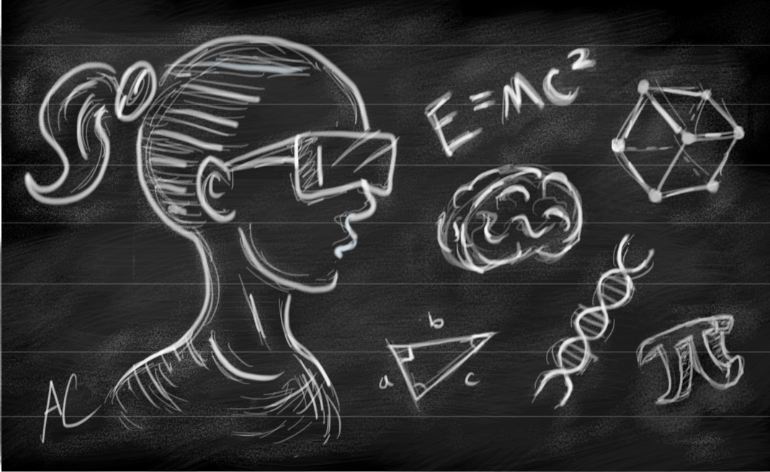
Editorial: More representation of women, minorities needed in STEM fields
The STEM field — science, technology, engineering and mathematics — is growing every day. These careers are becomingly increasingly important for the United States to keep up in global affairs. This demand has encouraged many students to pursue the STEM field, but with so many students, key groups are still left behind: women and ethnic minorities.
Fostering a diverse, welcoming scientific community is crucial toward reaching our highest potential. Colleges play a key role in this equation to expose all students to STEM activities and environments
One example of how colleges can affect change is USD. Researchers at South Dakota’s flagship university are using a grant from the National Science Foundation to recruit and train graduate students to help fill growing demand for STEM jobs in the public and private sector. Students in this new program will also learn about disciplines outside the sciences such as finance and entrepreneurship through the Beacom School of Business and eventually additional training options in education and scientific writing. This comprehensive program clearly dispels the notion that liberal arts has no space in the modern workforce.
This multi-faceted program should entice all people, including women and minorities, to consider pursuing a STEM career. Working in this field requires a very specific set of skills, usually creating stereotypes of “Big Bang Theory” characters, highly intelligent men wearing white coats and sitting in a lab.
Not many people fit this mold. As people shy away from considering a STEM career, the pool of qualified applicants becomes increasingly dominated by white men.
Compared to other professions, women in STEM overcome many obstacles present in today’s workforce. According to the White House, women in STEM jobs earn 33 percent more than those in non-STEM occupations and experience a smaller wage gap compared to men.
Despite the lessening gap for salaries, the gap in diverse employment still grows. One Department of Commerce survey cites possible factors contributing to this discrepancy include a lack of female role models, gender stereotyping, and less flexibility in the STEM fields.
Higher education can help encourage a transition to a more accommodating STEM field. The National Girls Collaborative Project found in 2012 that while women receive over half of bachelor’s degrees awarded in the biological sciences, they receive far fewer in the computer sciences, engineering, physical sciences and mathematics.
Even at a liberal arts college like USD, we should stay take notice of these trends. Education is important, no matter what field of study. We need diverse voices leading us toward a brighter future.
Although everybody studies different majors, we’re an interconnected community. We need to fight for each other’s rights as students to learn whatever we so choose.
Increasing opportunities for women and minorities in scientific fields helps women find greater economic success and equality across the board. Even those with no interest in STEM deserve to receive exposure and knowledge regarding all fields of study. Not only will we become more well-rounded, we will also become better equipped to enter our ever-shifting society.
The academic and professional worlds go hand in hand. Schools like USD are the foundations for change. As innovators, creators and thinkers, every single person, no matter their race or gender, deserves the tools required to grow and pursue our passions.
